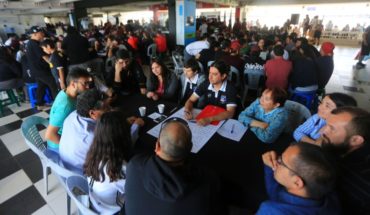
Before the first 10 days of 2022 passed, the first death this year of a person working at a salmon farming centre was recorded. The industry has received repeated complaints for failing to prevent the deaths of its workers: in 2021 alone, 14 people have died, and two so far this year. It is not clear that these deaths are the (legal) responsibility of the respective companies; what we do know is that they must respect human rights in their activities and supply chains, and that the state must ensure that this is the case.
Since 2011, the OECD and the UN have recognised the obligation of companies to respect human rights. This respect, as far as workers are concerned, should first be reflected in low accident rates and even lower fatality rates. While some activities and industries are more dangerous than others – which should mean higher wages and better insurance for the worker and his or her family – each productive sector should aspire to have zero fatality rates.
Meanwhile, the responsibilities of the State can be found in international standards for the protection of Human Rights: States have the obligation to investigate the responsibilities of companies and eventually their managers and directors in each case. In addition, they must adopt adequate regulation to oblige companies to take all preventive measures that can reduce or eliminate the risks that threaten the right to life of their employees. Comparatively, Norway has set an example, implementing regulatory reforms that managed to reduce the fatality rate to zero.
However, companies cannot wait for the state to legislate. They must, of course, take all measures at the level of corporate and sectoral governance to respect the right to life. Efforts in this regard cannot be limited to their own activities, but must oblige their contractors to follow appropriate measures to prevent deaths. Particularly in the salmon industry, an ISP report aims to reduce pressure on workers to accept very deep and back-to-back dives in order to secure their pay or get bonuses.
Currently, one way in which the salmon industry promotes respect for the right to life is through financing and certifications: companies that fail to prevent deaths no longer qualify for sustainable investments such as UNEP-FI or Blue Finance, nor for ASC certification, all of which are of growing importance to the industry.
But the state cannot sit idly by. In a recent decision, the Inter-American Court of Human Rights recognized the international responsibility of the State of Honduras towards the Miskito community, where dozens of divers died. The effectiveness of guarantees of non-repetition in such cases depends on the independent and autonomous control of the State, as well as on the decisions in the national and international boards. No one should compromise when it comes to the right to life of workers.
The content expressed in this opinion column is the sole responsibility of its author, and does not necessarily reflect the editorial line or position of El Mostrador.





